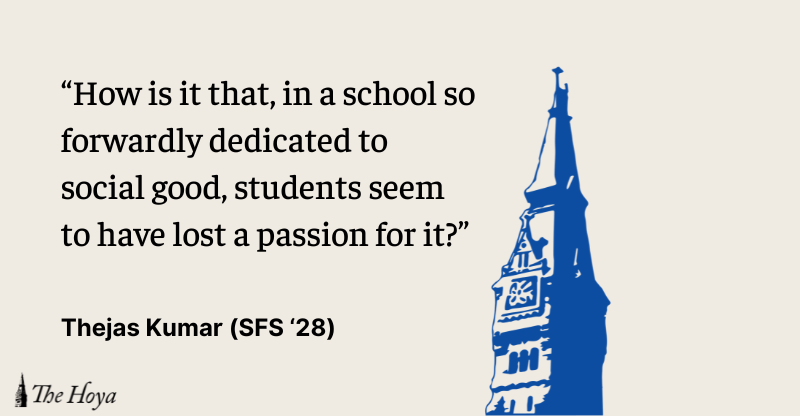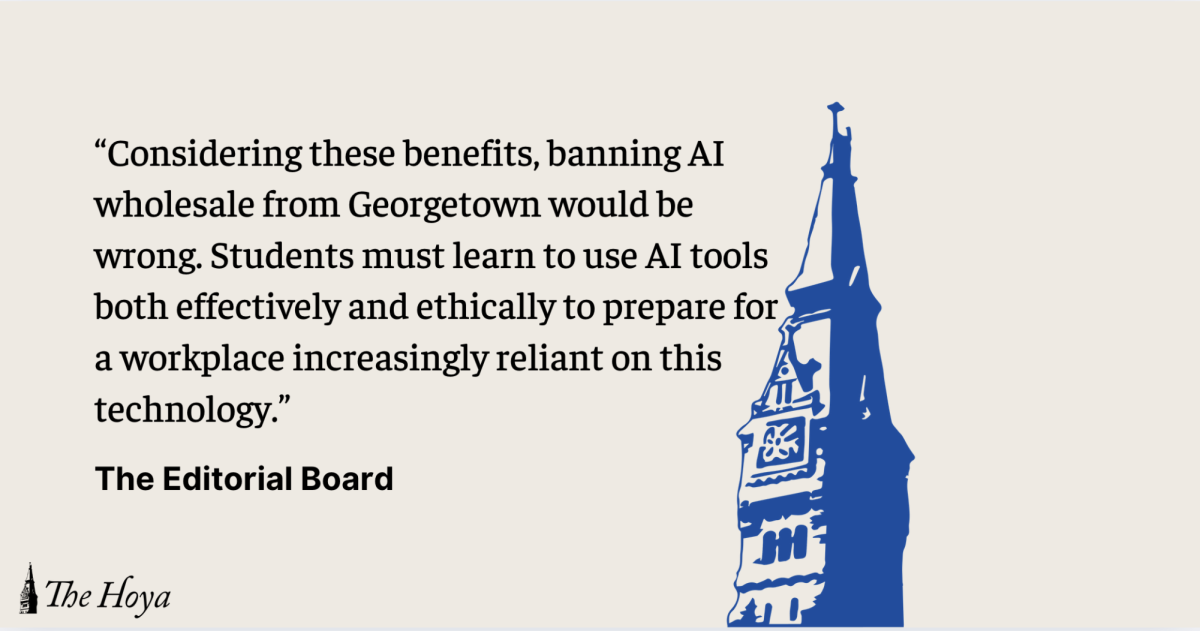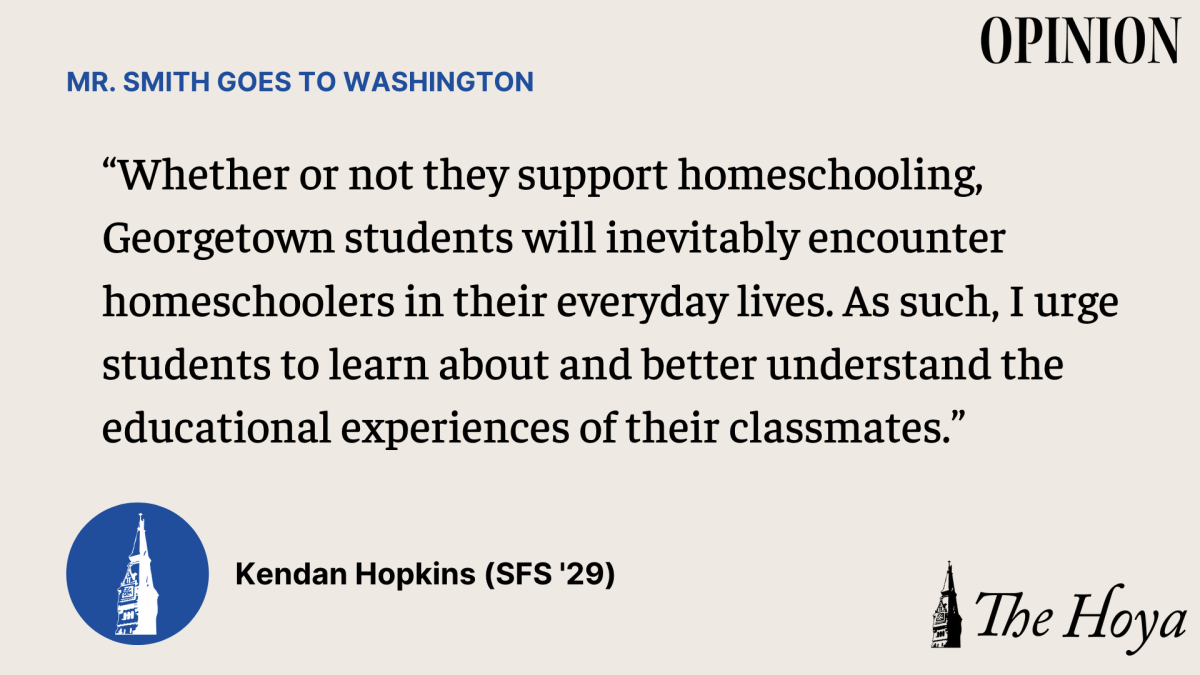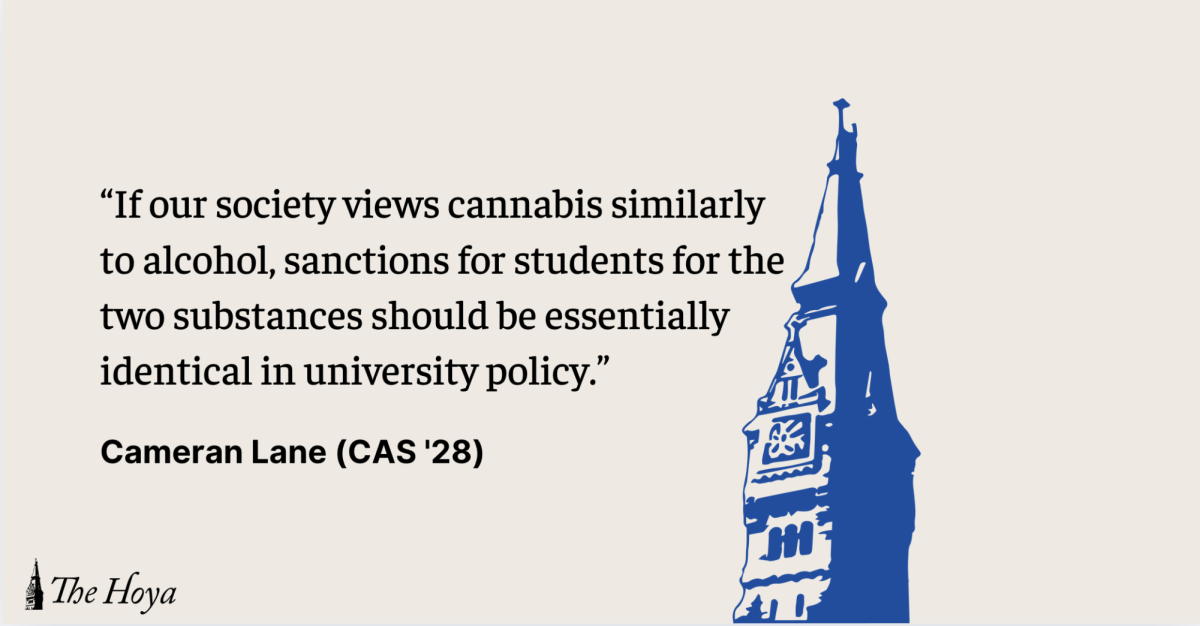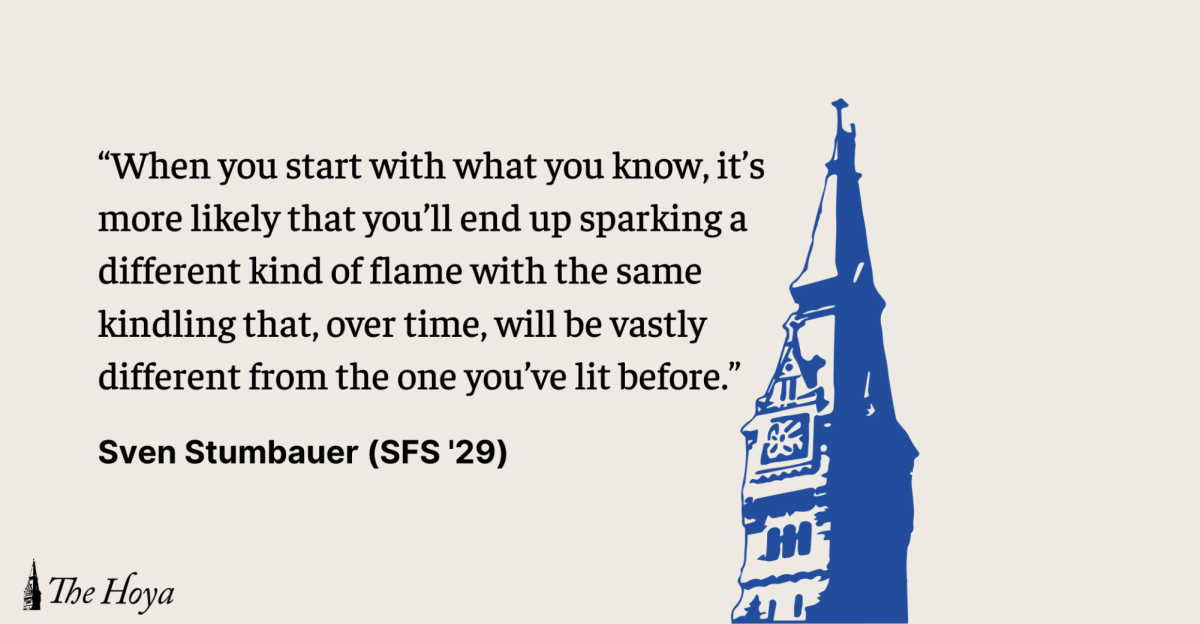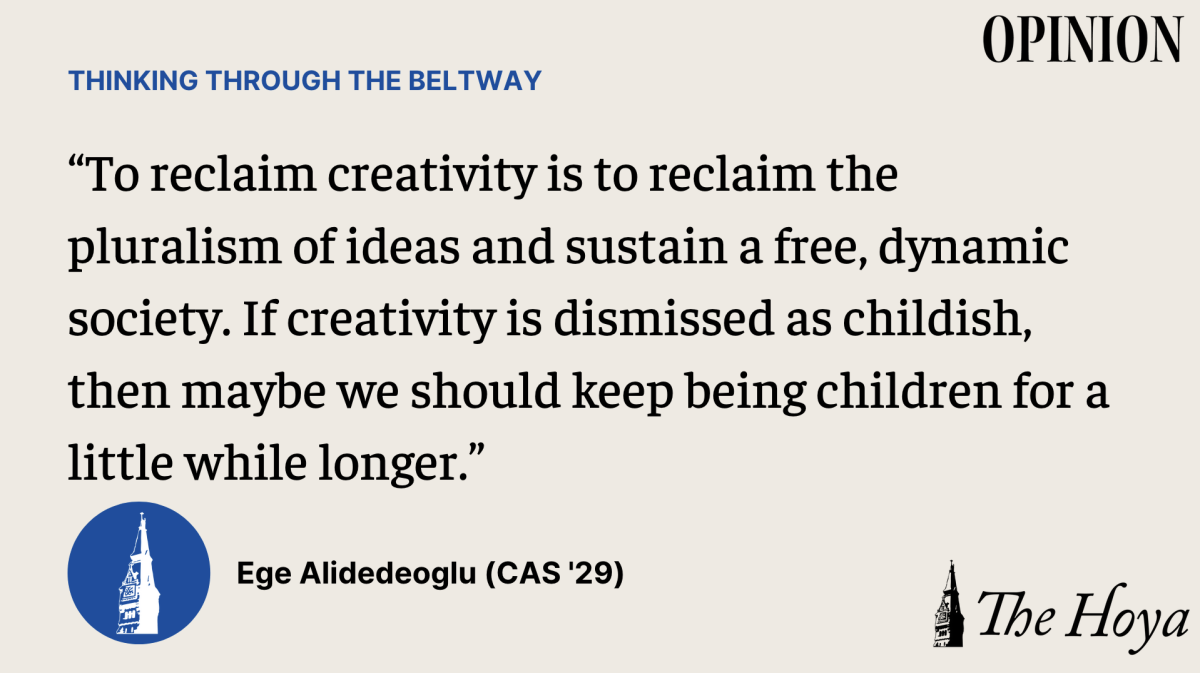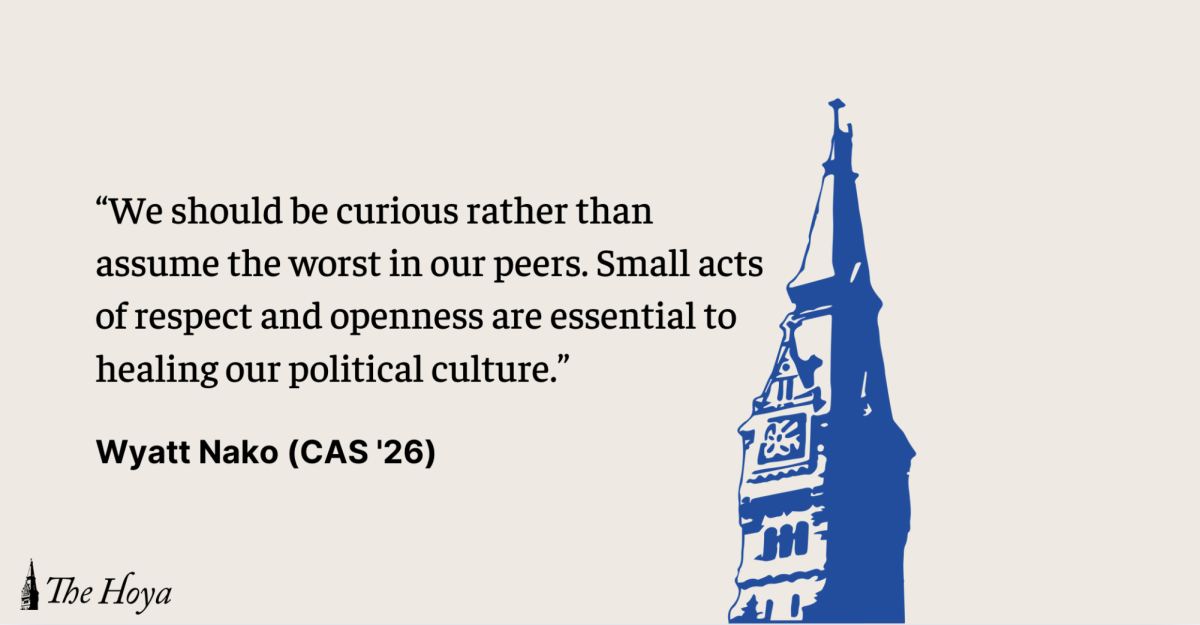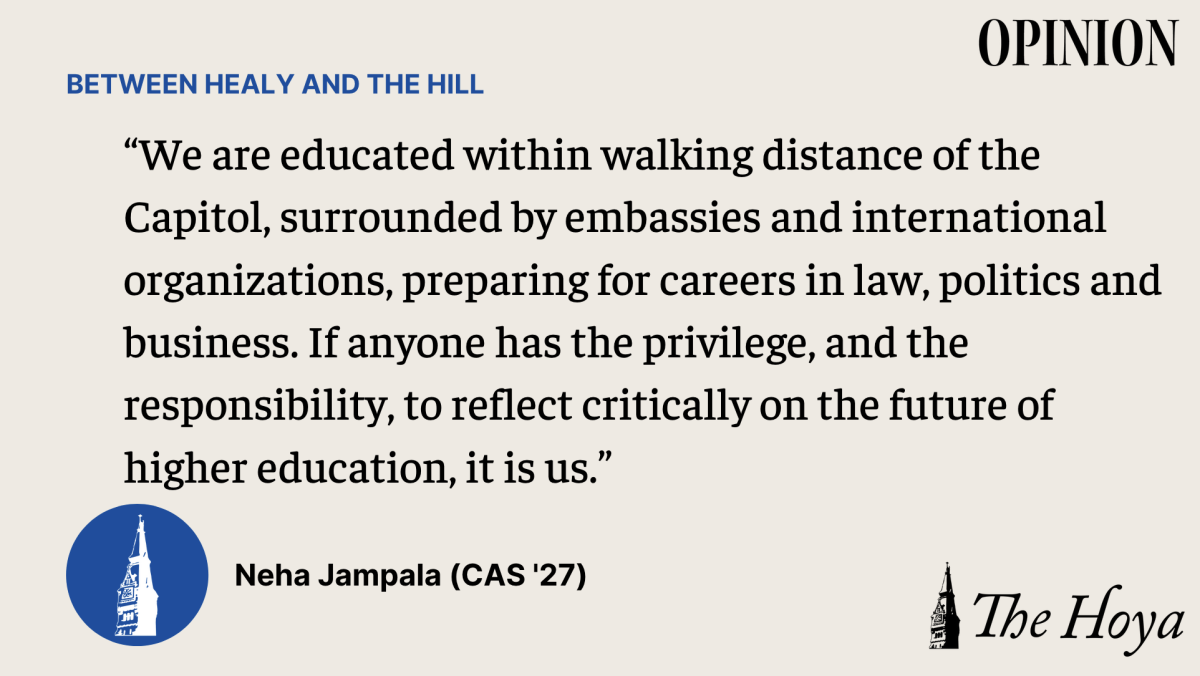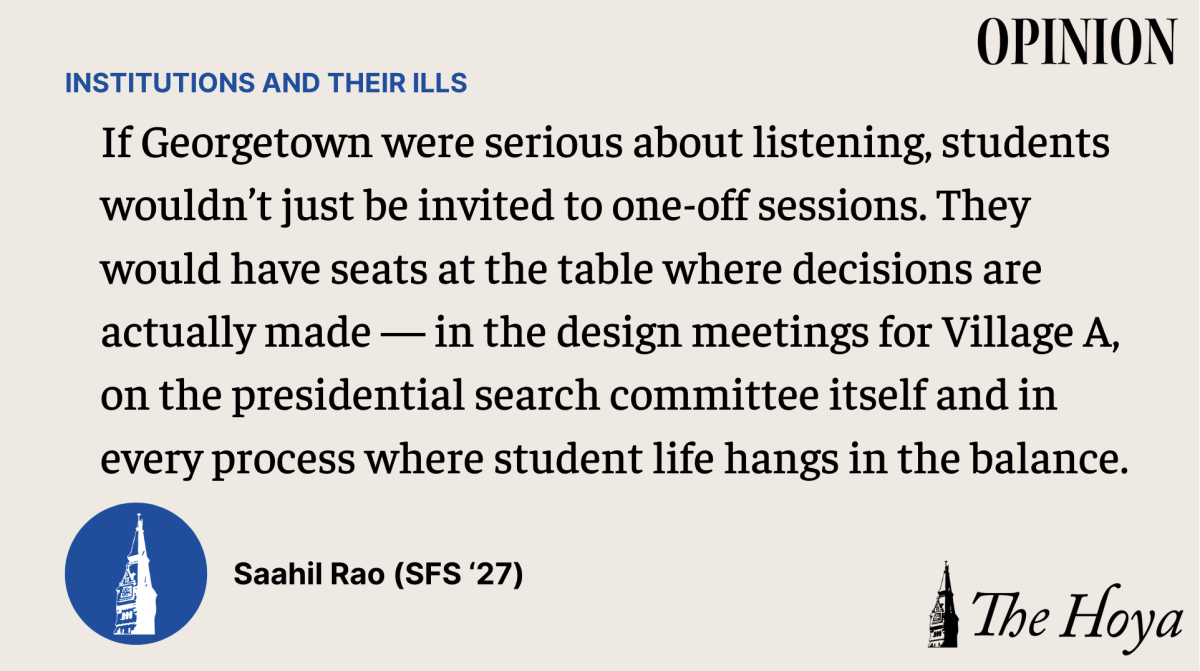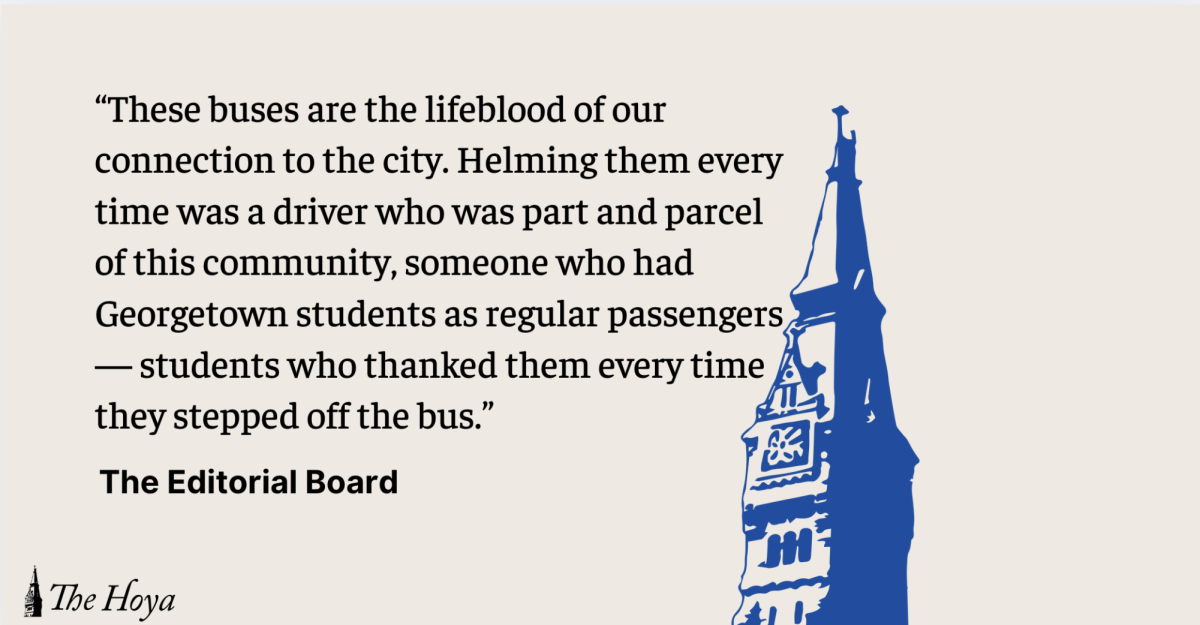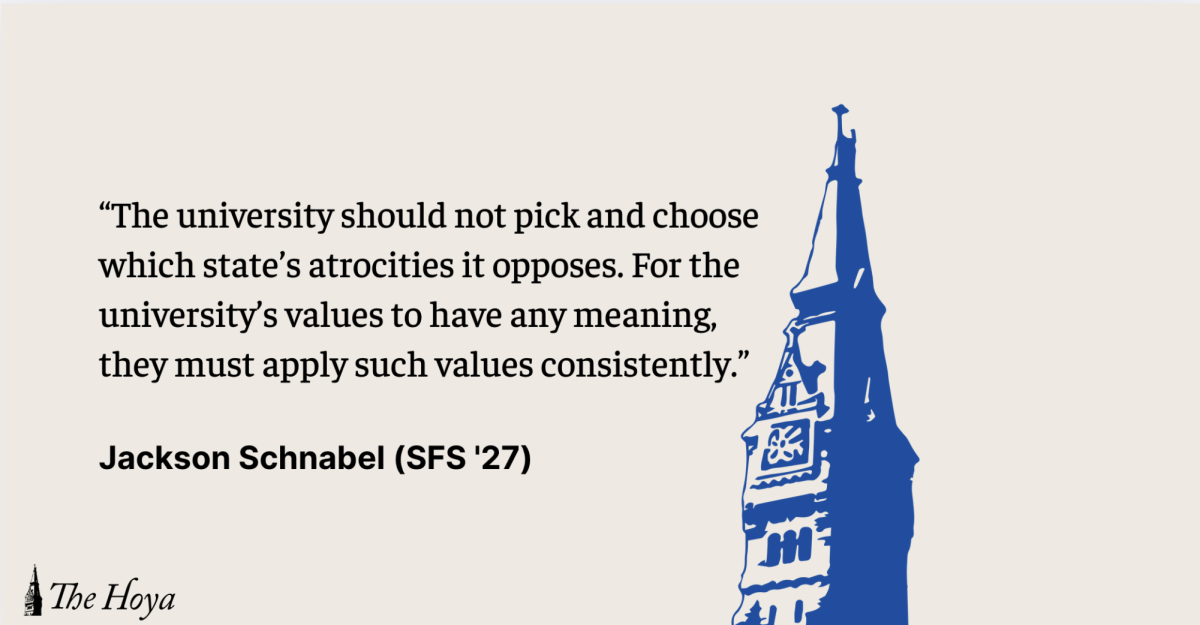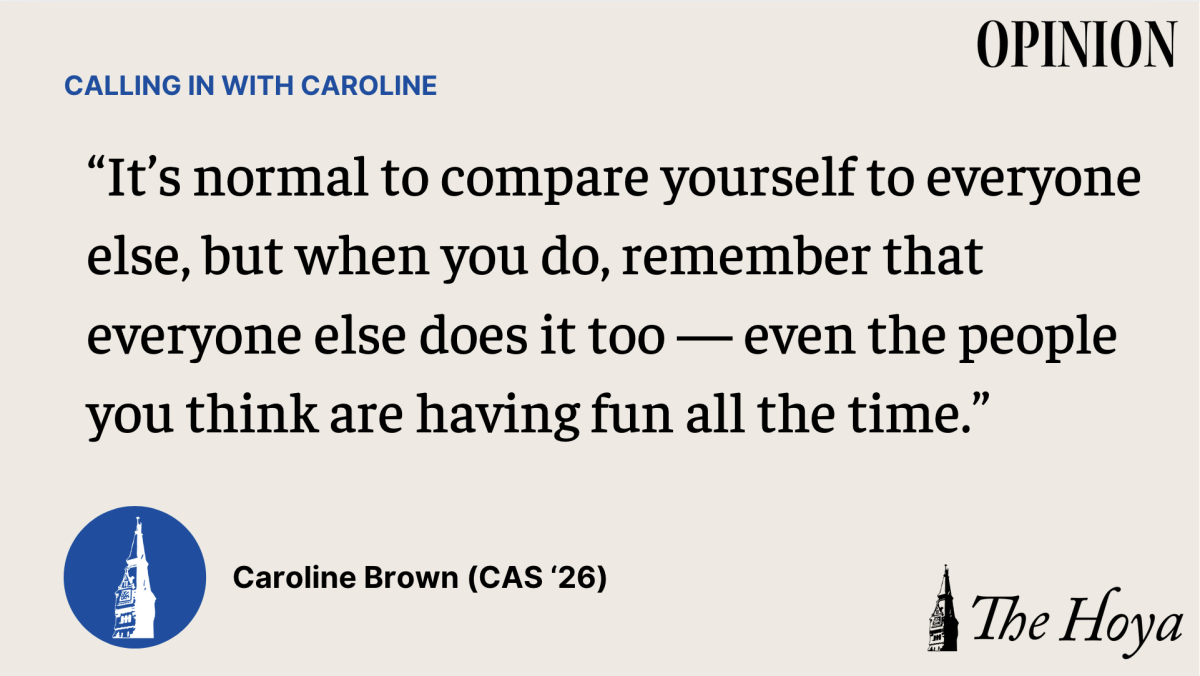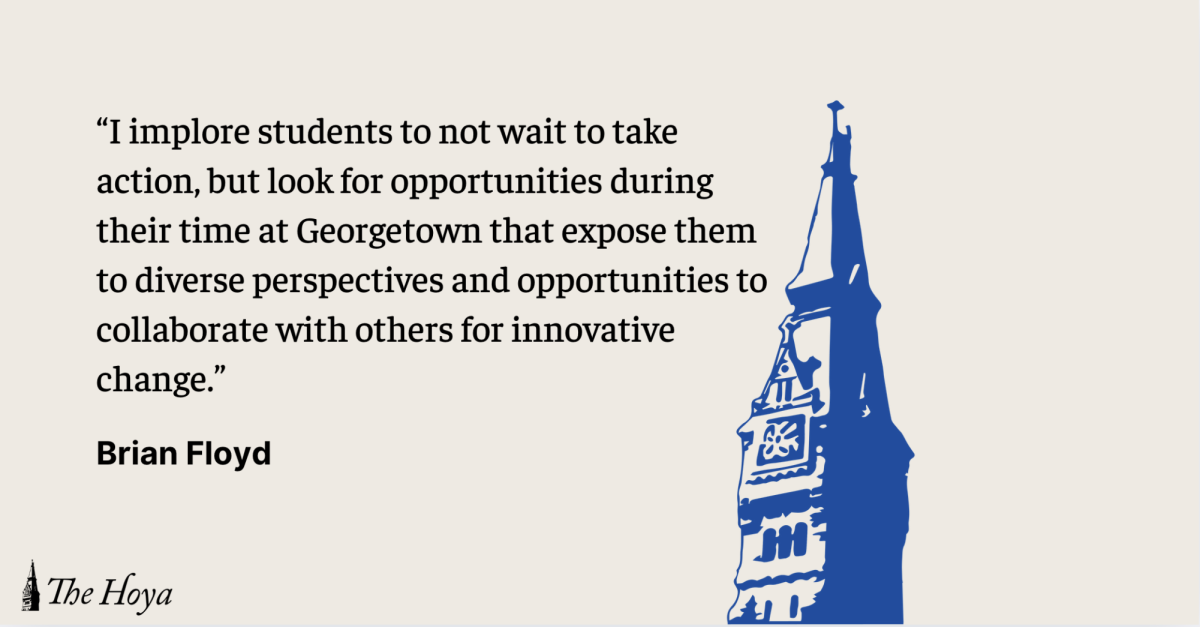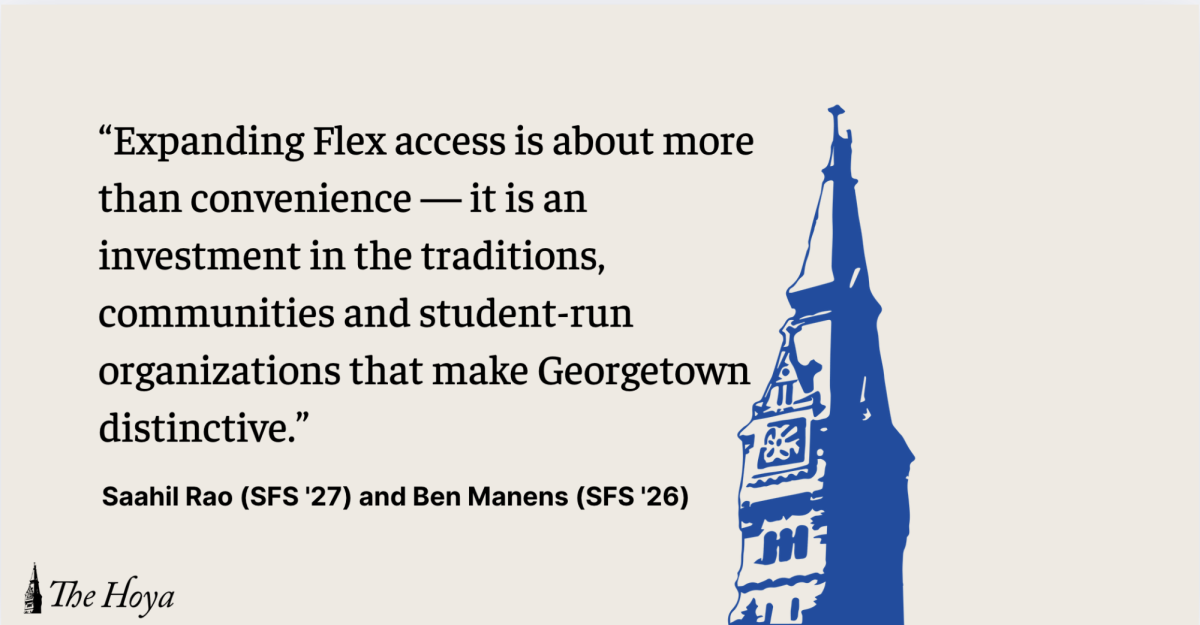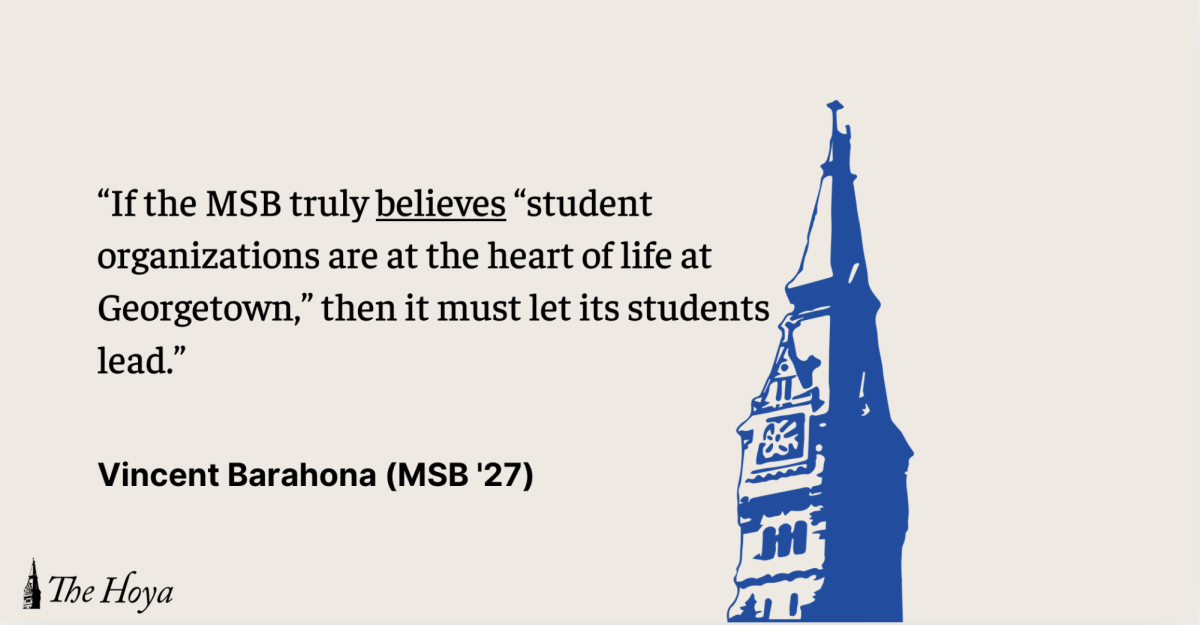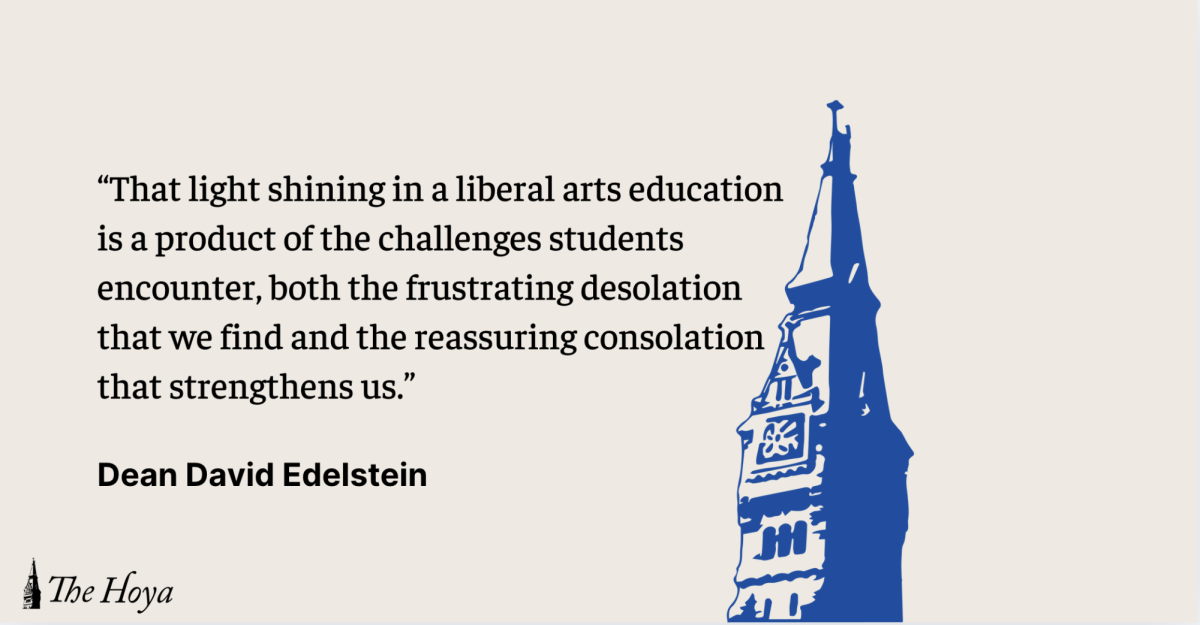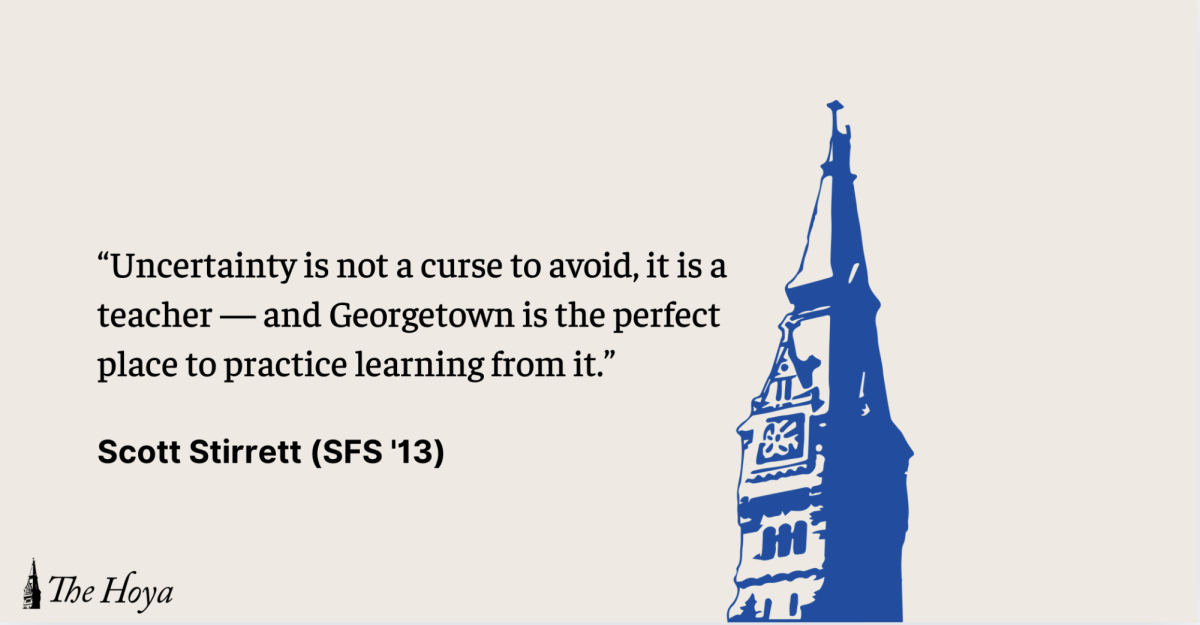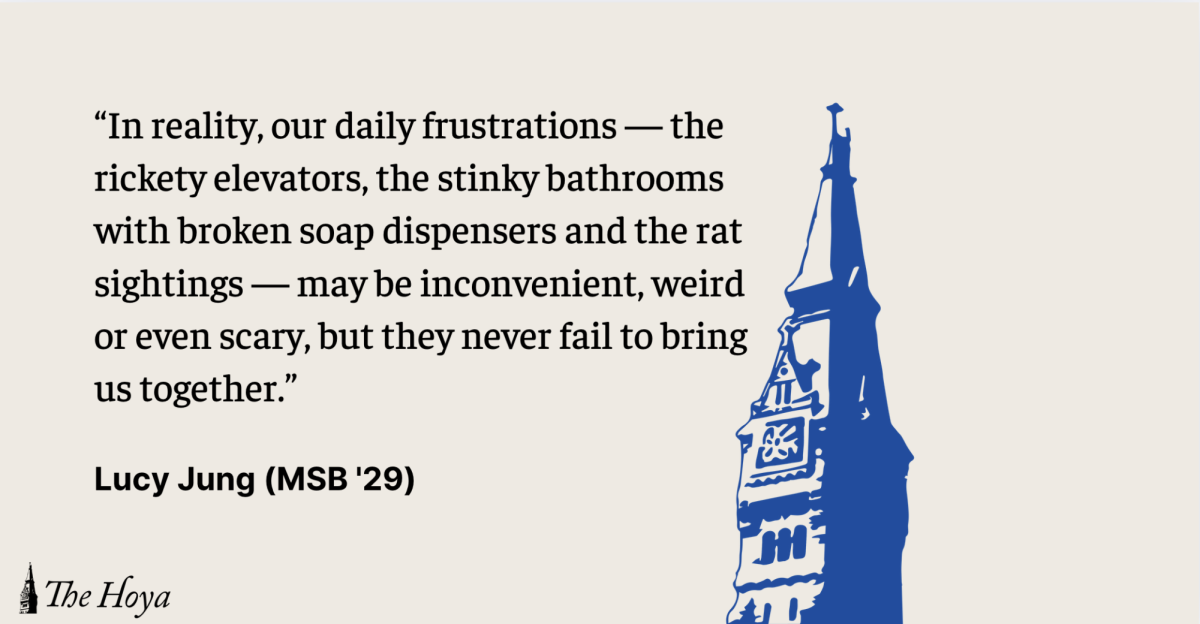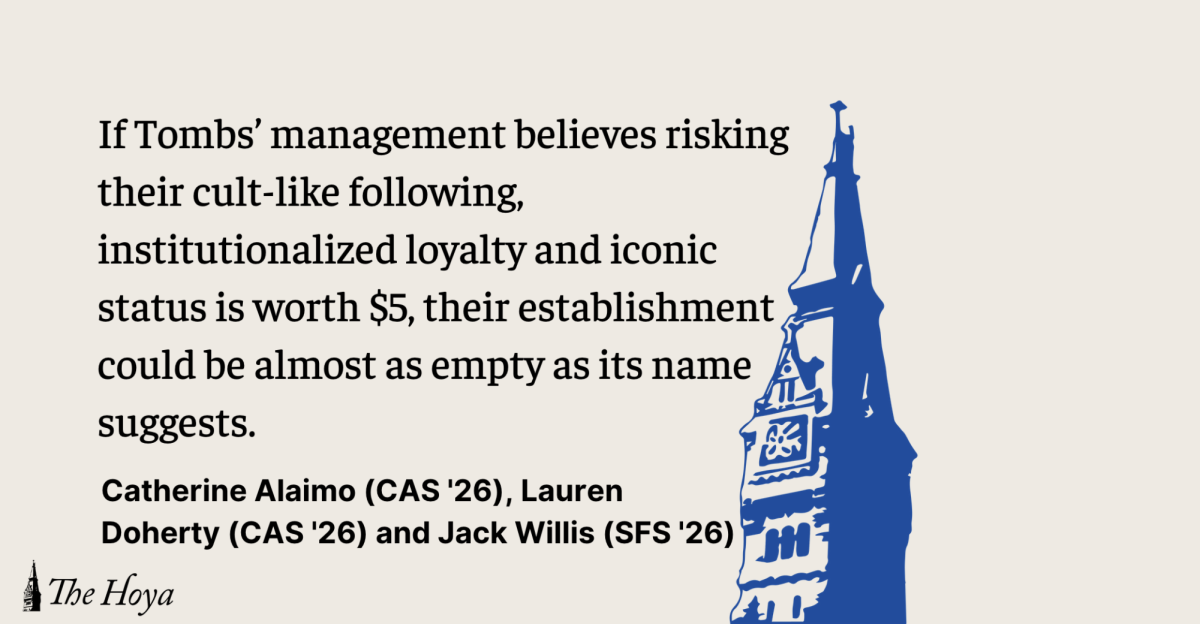Edmund Walsh’s hopes in “The Aims of the School of Foreign Service” were lofty: designing a school that would usher in a new era of diplomacy and arm the United States with the manpower required to safeguard world peace. At the very least, he believed it would develop leaders qualified for public service who could later serve in key positions of international governance.
A century later, those dreams have largely faded. Nearly a quarter of the School of Foreign Service (SFS) Class of 2023 went into consulting, with another 15% entering investment banking and financial services work after graduation. A paltry 7% of graduates of a “school of foreign service” went into international affairs.
This trend isn’t unique to the SFS, or even Georgetown University for that matter. The cost of a degree is sizable, and with that degree comes a pressure to immediately earn and put that degree to use — to achieve “success,” whatever that may be. Jobs in consulting and finance offer stable work with high starting-salaries that seem to check these boxes.
Even more than that, these jobs offer prestige — the same breed of prestige that influenced many of our individual decisions to come to Georgetown. We are taught to pursue competitive opportunities and difficult-to-attain work fits the bill — a message reinforced every time we see that bright “Deloitte” sign emblazoned on a building across the river.
I’m not inherently opposed to jobs in consulting or finance. These industries require a variety of skills that are perhaps best found in graduates of elite universities, and the pay reflects that — it’s not wrong to want to recoup the cost of your degree as soon as you can. However, there is an institutional problem that is reflected in the high percentage of students who go into these fields. When we come to college, many of us are still undecided about our career prospects. Over the course of our time here, we are told in many ways, both big and small, what the right choice is. The end result, driven by a process experts call “career funneling,” is less surprising and more predictable.
Over time, the “best and brightest” enter places that are meant to expose them to new ideas and opportunities, thereby broadening their horizons. Instead, they are systematically drawn to a handful of high-paying, purportedly prestigious fields that prioritize profit over any sort of personal or societal fulfillment. In the long run, this process leads to less and less talent being put toward meaningful societal change.
While this trend would be troubling at any university or school, it is especially so in the SFS. Situated in Washington, D.C., and possessing a stated commitment to service, the SFS would seem to be an ideal institution for pursuing careers dedicated to global service. Yet, SFS graduates still go into consulting or finance at disproportionate rates compared to work in international service. When nearly half of students at a school uniquely suited to public service reject it at the very outset of their professional lives, it signals a troubling misalignment between institutional mission and graduate outcomes. How is it that, in a school so forwardly dedicated to social good, students seem to have lost a passion for it?
A Georgetown student is, by definition, an ambitious student. However, that ambition and any subsequent success should not solely be defined by how much money we make and the prestige of our job. To me, success means pushing to enact meaningful change with the potential to impact the world around you.
Whether you agree or not, I implore you: Take time to explore the idea of service. Don’t just settle for the future you find most reasonable or most financially appropriate — do your best to look beyond the narrow paths presented to you. I think you’ll find yourself better off for the trouble.
Thejas Kumar is a first-year in the School of Foreign Service.


